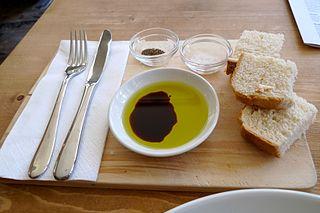Storm in an olive oil dipping bowl
If the latest moves to regulate the consumption of olive oil in restaurants from the European Commission were designed as a gift for the Brexit lobbythey could not have come at a better time. As Harvey Morris writing in the New York Times put it: “Even the most fervent supporters of the European Union would acknowledge that its bureaucrats occasionally display an unrivaled (sic) talent for shooting themselves in the foot.” Maintaining a tradition in the style of the bendy banana law and curvy cucumbers, amongst others.
The proposal set out in Commission Implementing Regulation amending Implementing Regulation (EU) No 29/2012 on marketing standards for olive oil would mean that from 1 January 2014:
“Oils made available to the final consumer in hotels, restaurants and pubs and bars shall be packed in containers equipped with an opening system which cannot be resealed after it has first been opened, together with a protection system preventing them from being reused once the contents indicated on the label have been finished.”
It has been universally greeted as ‘pretty silly’ and in numerous other media reports in terms which use much stronger language in the same vein. Mark Rutte, the Dutch Prime Minister, said of the proposal: “I think it is too bizarre for words and incomprehensible to come with this sort of proposal at a time like this.” He went on to point a finger at the UK for abstaining in the vote and so allowing the proposal to come forward.*
Opinion seems united on the fact that it will be small independent artisan producers who lose out the most in this move. Quite simply they will be unable to produce small containers of olive oil at a cost that restaurants will pay and are unable to bear the cost themselves. The hand of large commercial producers who will doubtless benefit from this move has no doubt been at work. Furthermore, it is a proposal likely to increase food waste, result in additional packaging and favour the use of less healthy alternatives.
There is no question that olive oil is high on the list of the most adulterated foods on the market. A fact so well catalogued by Tom Mueller in Extra Virginity: The Sublime and Scandalous World of Olive Oil but if consumers cannot trust restaurants over the quality of olive oil served, where does it all end? What about pepper and all the other condiments that adorn the table?
The European Union places much emphasis on measures being proportionate to the problems they are designed to address but there can be little doubt that on this occasion the proposals are over the top. Keep things in perspective, however, they are hardly grounds for quitting the European Union but sadly, in the current climate in the UK, the Commission has created more than the usual occasional rod for its back.
Meanwhile, who knows, when there are murmurings from Yotam Ottolenghi of a campaign of civil disobedience, we may not have heard the last.
*A more considered account, for those who may be interested, of the decision-making procedure followed which produced these proposals can be found on capreform.eu
Top photo credit: ©Ewan Munro from London, UK (Coach Makers, Marylebone, London Uploaded by tm) [CC-BY-SA-2.0 (http://creativecommons.org/licenses/by-sa/2.0)], via Wikimedia Commons
Post script: I claim no credit but the day following publication of this post Commissioner Dacian Cioloş took the highly unusual step of announcing that he was shelving the measures. The public outcry, particularly among northern EU countries was clearly too much to bear, and other ways are to be examined as a means of addressing the problem of "cheap olive oil in fancy bottles". Watch this space.





